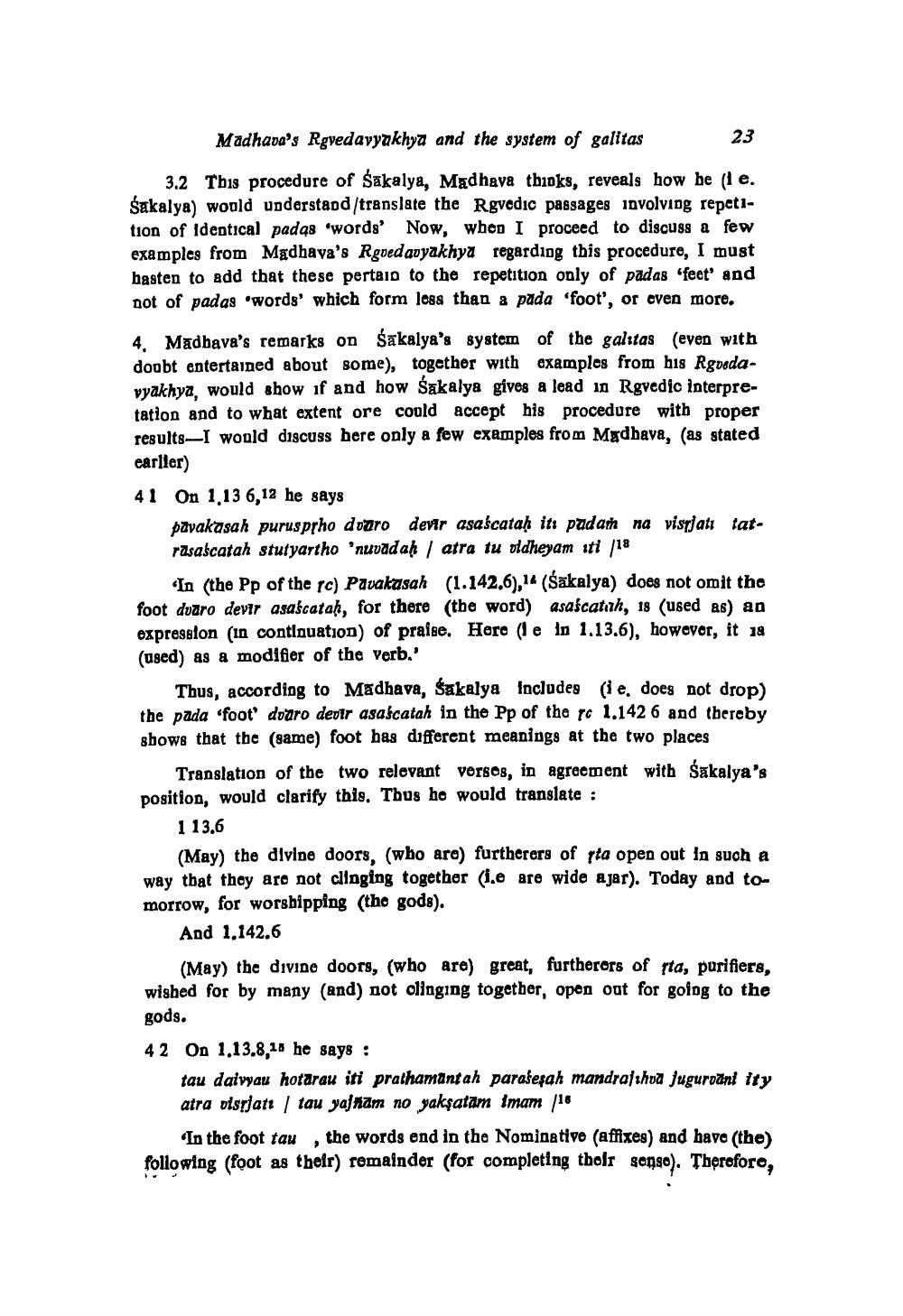________________
Madhava's Rgvedavyakhya and the system of galitas
23
3.2 This procedure of Sakalya, Madhava thinks, reveals how he (1 e. Sakalya) would understand /translate the Rgvedic passages involving repet1tion of Identical padas "words' Now, when I proceed to discuss a few examples from Madhava's Rgvedavyakhya regarding this procedure, I must hasten to add that these pertain to the repetition only of padas 'feet' and not of padas "words' which form less than a pada 'foot', or even more.
4. Madhava's remarks on Sakalya's system of the galitas (even with doubt entertained about some), together with examples from his Rgvedavyakhya, would show if and how Śakalya gives a lead in Rgvedic interpretation and to what extent ore could accept his procedure with proper results-I would discuss here only a few examples from Madhava, (as stated earller)
41 On 1,136,12 he says
pävakasah purusprho dvaro devir asascataḥ its padam na visrjati tatrasascatah stutyartho 'nuvadaḥ | atra tu vidheyam iti 18
In (the Pp of the rc) Pavakasah (1.142.6), 14 (Sakalya) does not omit the foot dvaro devir asascataḥ, for there (the word) asaścatuh, 18 (used as) an expression (in continuation) of praise. Here (le in 1.13.6), however, it 18 (used) as a modifier of the verb.'
Thus, according to Madhava, Šakalya Includes (ie, does not drop) the pada 'foot' dvaro devir asascatah in the Pp of the re 1.142 6 and thereby shows that the (same) foot has different meanings at the two places
Translation of the two relevant verses, in agreement with Sakalya's position, would clarify this. Thus he would translate :
1 13.6
(May) the divine doors, (who are) furtherers of rta open out in such a way that they are not clinging together (i.e are wide ajar). Today and tomorrow, for worshipping (the gods).
And 1.142.6
(May) the divine doors, (who are) great, furtherers of rta, purifiers, wished for by many (and) not clinging together, open out for going to the gods.
42 On 1.13.8,18 he says:
tau daivyau hotarau iti prathamantah paraseşah mandrajıhva jugurvani ity atra visrjatt tau yafnam no yakşatam imam [18
In the foot tau the words end in the Nominative (affixes) and have (the) following (foot as their) remainder (for completing their sense). Therefore,




